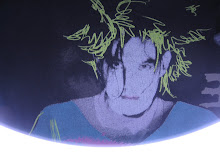skip to main |
skip to sidebar
on Translation Reviewers
As a general rule, as far as general rules allow, translators no longer must consider forfeiting their lives when translating sacred or controversial literature. The strictest punishments are normally parceled out by particular breeds of reviewers who devote 90% of a book review to the cultural and historical import of the author in translation -- reinforcing the "need" for an author's work in English translation. Fine so far. What happens with the remaining 10% of the review is usually one of the following:
- No mention is made of the work actually being a translation. In these cases one can assume that a majority of the review was pulled from the press material that accompanied the review copy of the book;
- Any discussion of the translation is relegated to mention of the English sounding smooth, often times without mentioning the actual name of the translator.
- More aggressive than passive jabs are taken at a translator, citing issues of plural v. singular or adjective/noun placement in terms of the original language. These claims are generally made without concrete examples from the text or taking into account the translator's introduction, which, theoretically, should discuss a basic translation strategy and the very issues that a reviewer might latch on to.
This final category of reviewer should be avoided on the street. They make any soup bad. Some of them are native speakers of the original language in question and have no patience for any sort of mutation of their sacred author's tongue. Others are competing translators who have their own versions of the author (or friends with translations), and yet others are hardcore traditionalists who abhor any variance from word order/sense between languages. Again, if you come upon any in the wild (including Harvard, Union, or Palmer Square), mark them, if possible, so that others will know. With the continually shrinking amount of review space given to works in translation, it becomes ever more vital to write something substantive rather than petty fueled by agenda.
As examples of solid reviews that deal with both author and translator/text and process, check out: Johannes Grannson on Tomas Tranströmer's The Great Enigma (New Directions) and Zoya Marincheva on Lyubomir Levchev's Ashes of Light (Curbstone Press). Then buy the books.

No comments:
Post a Comment